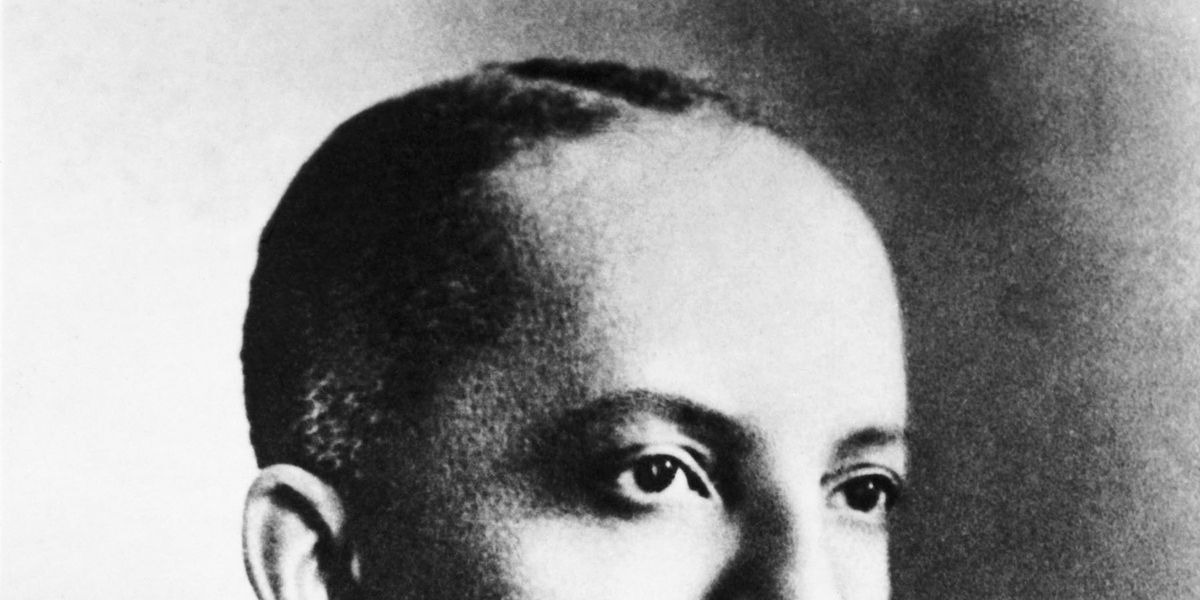
Ever wondered who's dubbed the "Father of Black History"? Carter G. Woodson is your answer, a name that resonates with profound significance in the annals of American history. This remarkable figure didn't just study history; he transformed its course, ensuring African American contributions were recognized and celebrated. With a life as rich and complex as the narratives he fought to include in our textbooks, Woodson's legacy is a testament to the power of education and perseverance. From his humble beginnings to becoming an iconic historian, his journey is nothing short of inspirational. Ready to get a glimpse into the life of a man who changed how history is written? Let's dive into the 10 best facts about Carter G. Woodson, each a brushstroke in the portrait of an extraordinary life.
Key Takeaways:
- Carter G. Woodson, the "Father of Black History," paved the way for Black History Month and fought cultural indoctrination through education and literature.
- His legacy lives on through the ASALH, a stamp in his honor, and the celebration of Black History Month, inspiring future generations.
Who Was Carter G. Woodson?
Carter G. Woodson, often hailed as the "Father of Black History," was an American historian, author, and journalist. Born to former slaves in 1875, Woodson's journey from the coal mines of West Virginia to becoming one of the first African Americans to receive a doctorate from Harvard University is a testament to his determination and intellect. His mission was to ensure African American history was properly documented and disseminated.
-
Carter G. Woodson was born on December 19, 1875, in New Canton, Virginia.
-
Despite starting formal schooling at a late age, Woodson excelled academically, eventually earning a Ph.D. in history from Harvard University in 1912.
The Birth of Black History Month
Woodson believed that history was more than just a study of dates and events; it was a tool for building self-esteem among African Americans and for fighting racial prejudice. His efforts led to the establishment of Negro History Week in 1926, which later expanded into Black History Month.
-
Negro History Week, the precursor to Black History Month, was first celebrated in February 1926.
-
Woodson chose February for this observance to honor the birthdays of Abraham Lincoln and Frederick Douglass, two key figures in African American history.
Contributions to African American Literature
Woodson's contributions weren't limited to the establishment of Black History Month. He was also a prolific writer, believing that education and knowledge could combat the racism of his time. Through his works, he sought to rewrite the African American narrative in a way that highlighted their achievements and contributions to society.
-
One of Woodson's most influential works is "The Mis-Education of the Negro," published in 1933. In it, he argues that African Americans were being culturally indoctrinated, rather than taught, in American schools.
-
He founded the Association for the Study of African American Life and History (ASALH) in 1915, which played a crucial role in promoting the study of Black history.
Legacy and Honors
Woodson's legacy is vast, impacting not just the field of history but also the broader cultural understanding of African American contributions to society. His work laid the foundation for the study of Black history in the United States and inspired generations of scholars and activists.
-
The headquarters of the ASALH is housed in the Carter G. Woodson Home National Historic Site in Washington, D.C.
-
In 1992, the U.S. Postal Service issued a Carter G. Woodson stamp, recognizing his contributions to American history.
-
Schools, libraries, and awards have been named in his honor, reflecting his impact on education and history.
-
Woodson's dedication to education and history is remembered every February during Black History Month, a testament to his vision that understanding the past is key to shaping the future.
A Final Nod to Carter G. Woodson's Legacy
Carter G. Woodson, often hailed as the Father of Black History, left an indelible mark on how we understand and celebrate African American history. His dedication to education and historical accuracy reshaped societal perceptions, ensuring future generations recognize the significant contributions of African Americans. Woodson's establishment of Black History Month stands as a testament to his vision, encouraging continuous exploration and appreciation of a rich cultural heritage. His work, embodying resilience and intellect, continues to inspire scholars and activists alike. As we reflect on Woodson's contributions, let's commit to furthering his mission, fostering an inclusive understanding of history that honors the diverse narratives shaping our world. Woodson's legacy, deeply woven into the fabric of American history, reminds us of the power of knowledge in driving social change.
Frequently Asked Questions
Was this page helpful?
Our commitment to delivering trustworthy and engaging content is at the heart of what we do. Each fact on our site is contributed by real users like you, bringing a wealth of diverse insights and information. To ensure the highest standards of accuracy and reliability, our dedicated editors meticulously review each submission. This process guarantees that the facts we share are not only fascinating but also credible. Trust in our commitment to quality and authenticity as you explore and learn with us.


